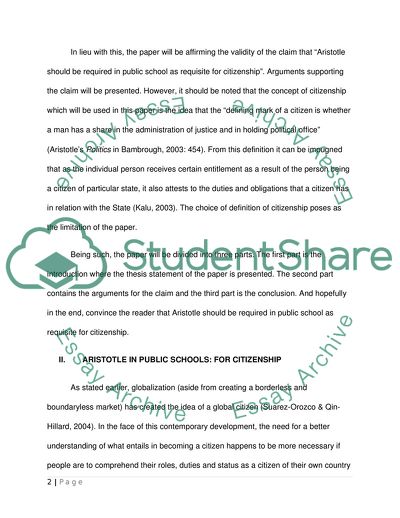Cite this document
(Aristotle and Citizenship Coursework Example | Topics and Well Written Essays - 1500 words - 2, n.d.)
Aristotle and Citizenship Coursework Example | Topics and Well Written Essays - 1500 words - 2. https://studentshare.org/philosophy/1730621-aristotle
Aristotle and Citizenship Coursework Example | Topics and Well Written Essays - 1500 words - 2. https://studentshare.org/philosophy/1730621-aristotle
(Aristotle and Citizenship Coursework Example | Topics and Well Written Essays - 1500 Words - 2)
Aristotle and Citizenship Coursework Example | Topics and Well Written Essays - 1500 Words - 2. https://studentshare.org/philosophy/1730621-aristotle.
Aristotle and Citizenship Coursework Example | Topics and Well Written Essays - 1500 Words - 2. https://studentshare.org/philosophy/1730621-aristotle.
“Aristotle and Citizenship Coursework Example | Topics and Well Written Essays - 1500 Words - 2”. https://studentshare.org/philosophy/1730621-aristotle.


